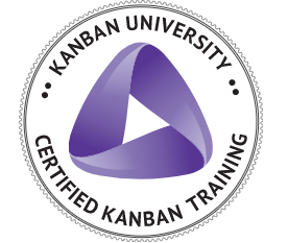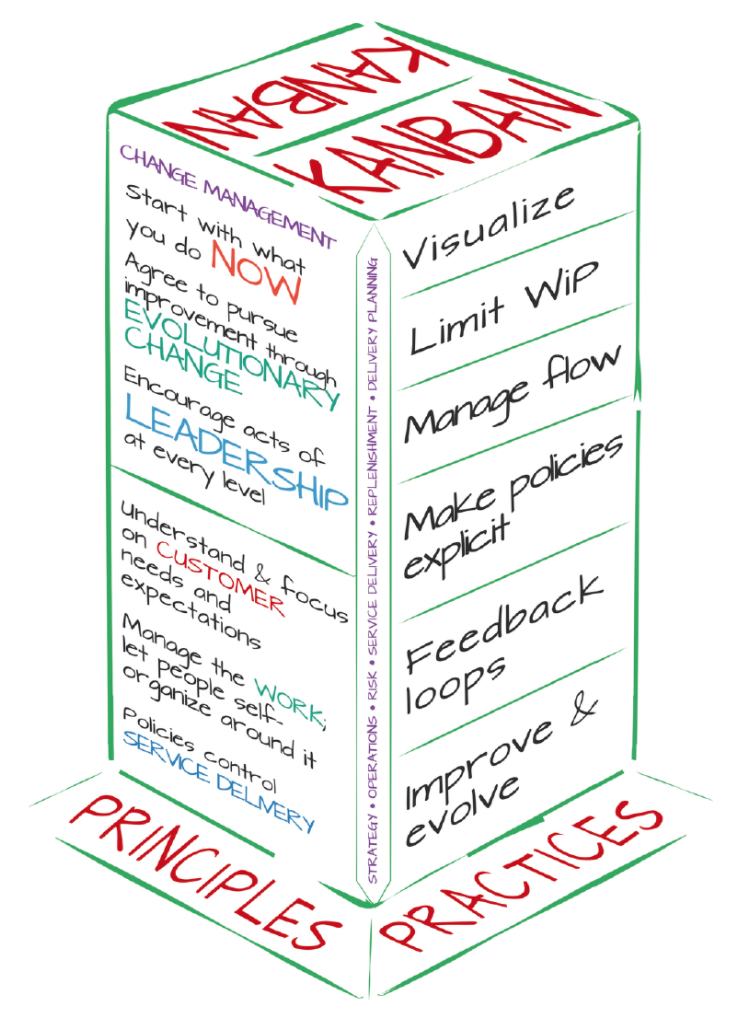Kanban Coaching Practices (KCP)®
Includes Kanban Coaching Practices (KCP)® course
What will you receive:
- High-quality training with Accredited Kanban Trainer (AKT) Hugo Lourenço
- Oficial training materials (PDF)
- Training certificate by Kanban University recognizing participation in the class
- Full kit KMM posters
- Access to exclusive Agile Thinkers Academy Digital library
- Agile Thinkers Academy Slack community
- Agile Thinkers Academy Certificate of Attendance
Attendees will receive the Certification Credential:
To achieve the Kanban Coaching Professional (KCP) credential, the following course requirements must be met:
- Kanban System Design (KSD)
- Kanban Management Professional (KSI)
- Kanban Maturity Model
- Kanban Coaching Practices
The KCP is an internationally recognized credential in the Kanban Method awarded by Kanban University.
PMI Professional Development Units (PDU)
Attendees may be eligible to apply for PDU towards their continuing education requirements with PMI
Description
Coaching skills to support the Kanban Maturity Model.
How can Kanban succeed even where other change initiatives have failed?
Applying Kanban’s gradual, non-traumatic approach to change, and leveraging the Kanban Maturity Model, coaches see more buy-in and greater success. Learn the techniques and mindset to extend your coaching skills.
This course will teach coaching tools and techniques to be successful leading significant evolutionary change initiatives with a goal of achieving Maturity Level 2 or Maturity Level 3 at an enterprise scale. This class offers a codified Kanban Method approach to introducing and implementing change and is specifically designed to augment the Kanban Maturity Model class.
This class is intended to extend the coaching skills of those who have already taken the Kanban Maturity Model class and want to obtain the Kanban Coaching Professional (KCP) credential. Together with the KMM it provides the full playbook of current Kanban coaching techniques.
Objectives
Learning objectives
- Understand Social Contextual Mapping as a means to see what and how to change
- Recognize four dimensions of social context as levers and understand tools to shift culture and sociology to enable change:
- Social capital
- Social cohesion
- Social innovation
- Tribal behavior
- Understand “first who, then why” – why identity matters more than purpose in defining behavior
- How to identity tribes and informal social groups
- How to model the identity of individuals and groups
- How to predict behavior based upon identity
- How to analyze and model the social capital, social cohesion, and social innovation of the tribes in your workplace
- Tools, actions, behaviors and values to modify the sociology and culture in the workplace
- When to tighten social cohesion to drive change
- How to improve trust and social capital, versus how to undermine it
- How and when to use Kanban coaching tools such as STATIK, the Kanban Lens, the Kanban Litmus Test
- Identify the typical barriers and inertia blocking achievement of maturity levels 2, 3 and 4
- Learn to coach common objections such as “all our demand has a fixed delivery date,” and “all our demand is irrefutable”
- Learn when and how to implement the service delivery manage (SDM) and service request manager roles with Kanban
- How to negotiate implementation of Kanban with a broader group of stakeholders after completion of a STATIK workshop
Course Audience
This class is intended to extend the coaching skills of those who have already taken the Kanban Maturity Model class and want to obtain the Kanban Coaching Professional (KCP) credential. Together with the KMM it provides the full playbook of current Kanban coaching techniques.
This class is useful for anyone who wants to gain the ability to coach a Kanban initiative with a goal of achieving Maturity Level 3 using the playbook as map and guide. This course leads to the Kanban Coaching Professional credential.
Prerequisites
The Kanban Management Professional (KMP) credential is required. To achieve the Kanban Coaching Professional (KCP) credential, students must have the Kanban Management Professional (KMP) credential, and complete the Kanban Maturity Model (KMM) and Kanban Coaching Practices training. Course participants are encouraged to have read the book Kanban Maturity Model by David J Anderson and Teodora Bozheva.

Training Remotely | Guidelines for a Successful Experience

Congratulations on joining Agile Thinkers remote courses. We are committed to facilitating a pleasant and enriching experience for all our attendees.
That's is why it is critically important that we are clarifying how we're going to work together to be most effective. So, let's develop some working agreements and suggestions to encourage the type of team environment that we want to foster during our training sessions.
Before the training starts:
1. Inform your co-workers/colleagues what will be the time you're attending training, and you shouldn't' be interrupted;
2. Look for a comfortable and quiet place to set your training spot;
3. Reduce distractions, noises and background interference;
4. Test your internet signal and guarantee you have a good connection;
5. Please please take some time to explore the tools and how to login;
6. Visit the toilet 10m before the session starts;
7. Stay hydrated;
8. Bring a notebook and a pen with you;
9. Limit interruptions from family members;
10. Make sure you turn off Outlook, gmail, Slack, WhatsApp, Skype or other sources of interruption;
11. If you can, select flight mode on your phone;
12. Test your earphones.
During Training:
1. While there are no questions, confirm you are mute;
2. Ask for help if you have any questions unmuting yourself or sending a message in chat;
3. Use Chat area to address the trainer some questions. As soon as possible, we will give feedback.
4. Respect the Time-boxes;
5. Be on time so you can deliver on time;
6. Don't accept calls while you're on training unless is extremely necessary and vital for you;
7. Please keep your camera on;
8. It's completely forbidden for students to record audio or video of any kind or take pictures from the sessions without written agreement;
9. For training. and quality assurance purpose of our staff, we can record video, audio and the chat of all sessions;
10. Have fun! Enjoy your course!
Make sure you also check our FAQs
All trademarks mentioned are the property of their respective owners.


